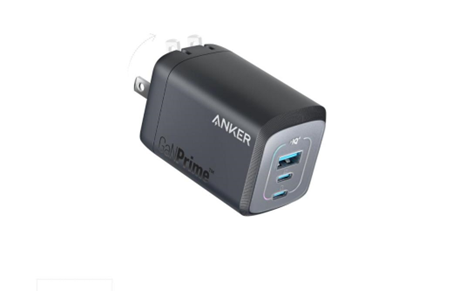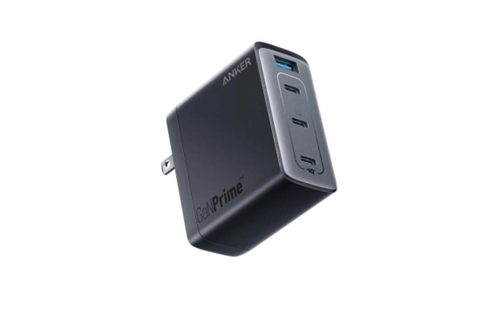There are various types of phone chargers available in the market today and they differ from each other in terms of power, port type, charging speed and portability. So this article below is a detailed description of the different types of phone chargers.
Types Of Phone Chargers
USB-A Chargers
USB-A chargers are the most common type of charger and usually have a traditional USB Type-A connector. This type of charger is suitable for most mobile devices, including smartphones, tablets, Bluetooth headsets, etc. USB-A chargers usually have an output power of 5V, so the charging speed is relatively slow and suitable for general daily charging needs.
USB-C Chargers
USB-C chargers use the USB Type-C connector, which has a higher power output capability and faster charging speed. This is because it supports the fast charging protocol, which means it can achieve faster charging speeds than traditional USB-A chargers by providing higher power output. For example, some USB-C chargers can charge a smartphone to most of its charge in a short period, making it ideal for much-needed charging situations in busy lifestyles. In addition, USB-C ports are also reversible and pluggable, making them more convenient and easier to use. So not only can the USB-C charger be used for charging, but it can also be used as a data transfer port. You can use the same charger for charging and data transfer with your device, such as connecting to a computer for file transfer, backup or charging.

What's more, USB-C chargers are widely used for all kinds of devices, including smartphones, tablets, laptops, headphones, watches and more. This means that you only need to carry one charger to provide charging for a wide range of devices, avoiding the hassle of carrying multiple chargers of different types. This type of charger is usually more compact and lightweight, making it easy to carry. You can slip it into your pocket, bag or suitcase to conveniently replenish power to your devices at any time. This phone charger is a very practical option for those who travel a lot or are on the go.
Wireless Chargers
Wireless chargers use the principle of electromagnetic induction to wirelessly charge devices by placing them in an induction area above the charger. Wireless chargers typically use the wireless charging standard for smartphones and other devices that support wireless charging capabilities. Wireless chargers have relatively slow charging speeds, but are convenient and do not require a charging cable to be connected.
Rapid Chargers
Rapid chargers are chargers with fast charging technology, and these chargers can deliver higher power outputs for faster charging depending on the device's needs. Rapid chargers work best when used with devices that support the appropriate rapid charging protocol.

Multi-port chargers
Multi-port chargers have multiple charging ports that can charge multiple devices at the same time. They can be a combination of USB-A, USB-C or hybrid ports. This type of charger is perfect for charging multiple devices at once at home, in the office or while travelling.
Car Chargers
Car chargers are chargers specifically designed to be used in cars. They are usually powered through the car's cigarette lighter jack and have one or more USB ports that can be used to charge mobile devices in the car.
Summary
Overall, different types of mobile phone chargers differ in terms of power, port type, charging speed and portability. USB-C chargers offer higher power output and fast charging capabilities, while wireless chargers offer greater convenience. Fast chargers are for devices that support the appropriate fast charging protocols, while multi-port chargers and car chargers are for charging multiple devices at once. It is important to choose the right mobile phone charger for your needs to ensure efficient and safe power delivery to your mobile devices.